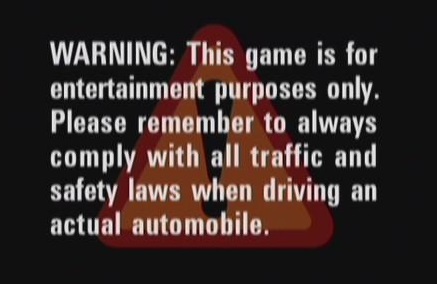 My daughter wanted a new backpack last year about this time, and after several unfulfilling stops, we ended up at Target. The selection was a bit slim, but she found something that seemed like a good combination of practical and not-entirely-embarrassing, and we took it to the nearest register.
My daughter wanted a new backpack last year about this time, and after several unfulfilling stops, we ended up at Target. The selection was a bit slim, but she found something that seemed like a good combination of practical and not-entirely-embarrassing, and we took it to the nearest register.
It didn’t have a tag, which was inconvenient, so the girl at the register called a guy from the back. He found similar backpacks of the same brand, but not an exact match – it being a few weeks after school had started and all. A third person was called, a manager of some sort, who finally explained to me that she couldn’t sell me the backpack because it lacked a tag and thus could not be scanned by the computer.
By now we’re 20 minutes into our effort to purchase this backpack, and my daughter likes this one – not the ones we saw at Academy, or the ones we examined at Wal-Mart, and not the selection at Dick’s.
Yes, there’s a major chain of sporting goods stores which chose to call itself “Dick’s.”
I offered to pay the highest of the various prices listed along that aisle. Worst case for the store, I pay the correct price. Chances are I’m paying more than it’s worth, but I’m happy, and they’d be rid of the one without the tag.
No.
The manager couldn’t, or wouldn’t, because there was no tag. I could not have it at any price because they couldn’t scan it.

Let’s step back for a moment and ponder the nature of Target. Its sole function is to sell people things they want, and in so doing make a reasonable profit after paying their employees and other overhead. To the best of my knowledge they don’t claim to do or be anything more or less. They guess what we might buy, procure it, tell us it’s pretty, and we flock.
But not this time.
The summer prior I’d had a similar problem with AT&T, who wouldn’t send me a phone I’d ordered. The website said they had it, the guy in the warehouse confirmed they had it, and even the manager I finally reached after 90 minutes of minion phone-tag hell acknowledged that it was on the shelf in front of her – but the computer wouldn’t let them send it to me because it showed they were out.
 I remember losing my composure and at some point nearly yelling that “THE COMPUTERS. ARE. NOT. IN. CHARGE!!!” before blacking out. Whatever happened seems to have worked – a few days later, my phone showed up.
I remember losing my composure and at some point nearly yelling that “THE COMPUTERS. ARE. NOT. IN. CHARGE!!!” before blacking out. Whatever happened seems to have worked – a few days later, my phone showed up.
The problem is NOT that a few individuals at Target or AT&T are idiots – I doubt that’s the case. It’s systemic. In our ongoing efforts to legislate, codify, and policy away bad decisions and stupid behavior, we tie the hands of the people actually DOING a job until they can do little BEYOND blindly following those policies.
I doubt anyone particularly wanted to deny me the joy of giving them money for their products. It’s far more likely they’d been trained to follow the rules at all cost, or face who-knows-what consequences. They did the defensible thing – even when diametrically opposed to their fundamental purpose – rather than the risky thing. They followed the rules by missing the point.
Why do those policies exist in the first place? Presumably, most began because someone did something stupid or dangerous without them.
You’ve probably noticed the tag on your hairdryer warning you not to use it in the shower, or the instructions in eleven languages not to let your kids play with large plastic bags. A recent commercial involved a post-apocalyptic warrior picking up a rhino by the horns and throwing it into the sky to knock down a helicopter. This scene is accompanied by small print warning us not to try this at home.
 There’s a legal division somewhere covering someone’s corporate behind by advising me not to throw a rhino at a helicopter. We need a rule for that? Is there a label on the rhino?
There’s a legal division somewhere covering someone’s corporate behind by advising me not to throw a rhino at a helicopter. We need a rule for that? Is there a label on the rhino?
A friend visiting his wife’s family in China a few years ago was surprised to notice while parking on the top level of a garage that there were no fences or other barriers to prevent someone falling. He asked about this, and was told with some bewilderment that anyone capable of driving a vehicle and parking it on the 15th story should be capable of not walking off the edge of a building.
We don’t assume that in America in 2014, and because we don’t, we can’t. We devote great energy and expense in our legislation, our business practices, and – yes – our public education, to make sure we raise an entire generation completely unable to make basic decisions or take risks or otherwise step out in ANY WAY. We begin, logically enough, by doing the same thing to their teachers.
We reward those who most closely mimic one another and culture at large, individually or in groups. We schedule conferences and base assessment not on great ideas but on ways to best ensure uniformity.
 We don’t judge teachers or their students on what they do well, but on what items they miss. Inspire your kids all you like, but if you don’t happen to be demonstrating requirements 4a, 4b, 7, and 11 and have your learning objectives on the board when your administrator drops in for five minutes, you suck. Write with passion, but if the MLA heading is on the top left instead of the top right, I can’t and won’t read it. It’s all about the policies.
We don’t judge teachers or their students on what they do well, but on what items they miss. Inspire your kids all you like, but if you don’t happen to be demonstrating requirements 4a, 4b, 7, and 11 and have your learning objectives on the board when your administrator drops in for five minutes, you suck. Write with passion, but if the MLA heading is on the top left instead of the top right, I can’t and won’t read it. It’s all about the policies.
We dictate the curriculum EVERYONE should know, mandate the tests EVERYONE must pass, and – perhaps out of necessity – regulate their dress, their behavior, and anything else we can standardize. We legislate away their choices in lunch, daily schedule, personal giftings, or genuine interests. We process them in the hundreds and in the thousands and quite honestly we can’t tailor too much or it all falls apart.
If only we had more laws, more rules, more guidelines… utopia!
We demand that those in charge be held accountable for the worst behaviors, the worst choices, the worst outcomes. The majority of our energy is consequently devoted to limiting the damage done by the bottom 5%, whatever the cost to the other 95%.
 It’s not working, by the way – somehow no matter what we do, there’s always that bottom 5%.
It’s not working, by the way – somehow no matter what we do, there’s always that bottom 5%.
In the process we’re crushing the initiative, the energy, and the ability to make sensible decisions based on the realities of the moment, out of our best teachers and students. And the average teachers and students. And the slightly below.
We’re making policy based on the worst of the worst at the expense not only of the best of the best, but of virtually everyone else.
Of course we’re left with a ‘real world’ whose populace seems so clueless, so helpless, so lacking in initiative or even concern. Of course I can’t buy the backpack without the right tag. It’s what we’ve been fervently working towards for years.
I’d like to try something different, but it’s against – well, you get the idea.

 I’m a bad person.
I’m a bad person. Don’t get me wrong – it’s just peachy keen swell that throwing a few computers in the middle of an impoverished village and making sure no teachers interfere practically guarantees a bunch of eight-year olds will master calculus, cure cancer, and reverse climate change. Here’s to the success of every one of those dusty darlings and even newer, bigger opportunities for them to challenge themselves AND the dominant paradigm. Seriously.
Don’t get me wrong – it’s just peachy keen swell that throwing a few computers in the middle of an impoverished village and making sure no teachers interfere practically guarantees a bunch of eight-year olds will master calculus, cure cancer, and reverse climate change. Here’s to the success of every one of those dusty darlings and even newer, bigger opportunities for them to challenge themselves AND the dominant paradigm. Seriously. Maybe it would be better to do the entire building… eleven hundred freshmen set free to learn with a bank of Dells and no silly adults with their stifling expectations. Imagine the money saved on staff – and computers never take personal days or violate professional dress code!
Maybe it would be better to do the entire building… eleven hundred freshmen set free to learn with a bank of Dells and no silly adults with their stifling expectations. Imagine the money saved on staff – and computers never take personal days or violate professional dress code! I’m not unsympathetic. I get what these writers and speakers are going for. Most are trying to make the very valid point that when we try to cram kids’ heads full of 87-pages of curriculum standards compiled by committees and approved by states to be tested by bubbles, we are unlikely to either fill their buckets OR light their fires.
I’m not unsympathetic. I get what these writers and speakers are going for. Most are trying to make the very valid point that when we try to cram kids’ heads full of 87-pages of curriculum standards compiled by committees and approved by states to be tested by bubbles, we are unlikely to either fill their buckets OR light their fires. It’s not. Remember that Oregon Trail game we were all so excited about a few decades ago? That’s still about as cutting edge as educational games have managed, and that’s not even what most virtual learning is attempting.
It’s not. Remember that Oregon Trail game we were all so excited about a few decades ago? That’s still about as cutting edge as educational games have managed, and that’s not even what most virtual learning is attempting. There are glaring problems with this system, some within the school’s control and many more without. The biggest problem with the current model is also the most substantial barrier to all this self-directed learning we keep hearing will save us all – state legislatures dictate most of what’s supposed to be “important” and decide how these things will be assessed.
There are glaring problems with this system, some within the school’s control and many more without. The biggest problem with the current model is also the most substantial barrier to all this self-directed learning we keep hearing will save us all – state legislatures dictate most of what’s supposed to be “important” and decide how these things will be assessed. I’m from Tulsa. That means many things, but among them is an essential familiarity with Evangelical Protestantism in all its flaws and glory. I’m not a practicing evangelical, but neither do I find them so strange – they are my people, in warts as well as wisdom.
I’m from Tulsa. That means many things, but among them is an essential familiarity with Evangelical Protestantism in all its flaws and glory. I’m not a practicing evangelical, but neither do I find them so strange – they are my people, in warts as well as wisdom. It is in that spirit I’d like to remind some of us of some things we already know. Stuff we’ve learned from both study and practice, in the classroom and out. Feel free to throw out an ‘amen’ or raise your hands, although if you’re more of the snake-handling variety, I’d appreciate a heads up first. Otherwise, please allow me to preach to the choir a bit…
It is in that spirit I’d like to remind some of us of some things we already know. Stuff we’ve learned from both study and practice, in the classroom and out. Feel free to throw out an ‘amen’ or raise your hands, although if you’re more of the snake-handling variety, I’d appreciate a heads up first. Otherwise, please allow me to preach to the choir a bit… (3) On that note, it’s totally OK for you to do stuff that works in class, even if it’s not what works for everybody else. It may not be what’s trendy at the moment, or hi-tech, or flipped, or project-based. Some of you give killer lectures that suck kids in, while others work magic with a few markers and an unnatural enthusiasm for asymptotes. I know one lady who makes “foldables” a meaningful genre, which so never works for me.
(3) On that note, it’s totally OK for you to do stuff that works in class, even if it’s not what works for everybody else. It may not be what’s trendy at the moment, or hi-tech, or flipped, or project-based. Some of you give killer lectures that suck kids in, while others work magic with a few markers and an unnatural enthusiasm for asymptotes. I know one lady who makes “foldables” a meaningful genre, which so never works for me. Mind the gap between acknowledging factors beyond your control (don’t blame yourself for every miracle you can’t work) and justifying lethargy by blaming the kid and his or her world. It’s not their job to come from better backgrounds – it’s yours to overcome that background.
Mind the gap between acknowledging factors beyond your control (don’t blame yourself for every miracle you can’t work) and justifying lethargy by blaming the kid and his or her world. It’s not their job to come from better backgrounds – it’s yours to overcome that background.  (9) Our kids have potential, even when they hide it rather well.
(9) Our kids have potential, even when they hide it rather well. 
 Introducing… Courtney. Of course her name wasn’t really Courtney, but for purposes of this blog she’s Courtney. Her real name was Alisha, but I’d never use it – it would be unprofessional.**
Introducing… Courtney. Of course her name wasn’t really Courtney, but for purposes of this blog she’s Courtney. Her real name was Alisha, but I’d never use it – it would be unprofessional.** I was young enough to still cling to a FEW ideals and principles – should I give in so easily when I didn’t think it was best for classroom dynamics and expectations, best for me, or even best for Courtney? Did we want to teach her that sufficient complaining could solve any problem?
I was young enough to still cling to a FEW ideals and principles – should I give in so easily when I didn’t think it was best for classroom dynamics and expectations, best for me, or even best for Courtney? Did we want to teach her that sufficient complaining could solve any problem? What mattered was the fight. Going down gloriously. Holding the pass for as long as you might, no matter the cost. Standing in the gap full of idealistic defiance for as long as you can before you are inevitably overrun.
What mattered was the fight. Going down gloriously. Holding the pass for as long as you might, no matter the cost. Standing in the gap full of idealistic defiance for as long as you can before you are inevitably overrun. The bureaucrats have more bullsh*t than we have shovels, and the hordes of ignorance are legion. Those who are with us are far, far fewer than those who are against us, and whether you use Common Core math or give up and figure it the old way, we are totally and completely screwed.
The bureaucrats have more bullsh*t than we have shovels, and the hordes of ignorance are legion. Those who are with us are far, far fewer than those who are against us, and whether you use Common Core math or give up and figure it the old way, we are totally and completely screwed. But try, just for a moment, to taste the glory of wildly doing what you do best without recourse to future progress or past circumstances. Imagine knowing you’re not alone, and that if you’re going down, you’re going down doing all you know how to do – insufficiently, to be sure, but leaving it all in the fields.
But try, just for a moment, to taste the glory of wildly doing what you do best without recourse to future progress or past circumstances. Imagine knowing you’re not alone, and that if you’re going down, you’re going down doing all you know how to do – insufficiently, to be sure, but leaving it all in the fields. But they had a point. Freedom is a terrifying thing. There’s great comfort in structure – even confinement. I’ve seen this dramatically demonstrated in recent years as I’ve watched students navigate my decision to give them greater leeway in what they research, how they demonstrate it, and how they wish to be assessed. Some have flourished with the sudden reduction in boundaries, but many find themselves… hindered by too much freedom – especially if it comes with too little scaffolding, given too suddenly.
But they had a point. Freedom is a terrifying thing. There’s great comfort in structure – even confinement. I’ve seen this dramatically demonstrated in recent years as I’ve watched students navigate my decision to give them greater leeway in what they research, how they demonstrate it, and how they wish to be assessed. Some have flourished with the sudden reduction in boundaries, but many find themselves… hindered by too much freedom – especially if it comes with too little scaffolding, given too suddenly. It’s not always so clear, however. Some stuff is tricky. Obeying your parents certainly has practical, cultural, and maybe spiritual value even today, but to what extent and in what circumstances? It’s easy to become dogmatic about something like hair length or tattoos (it wasn’t that long ago these were deal-breakers) while warnings against too much planning, or saving, are set aside quickly – often without even bothering to come up with good reasons. The modern Christian simply is NOT going to forsake ALL ELSE to follow Him – we’ll come up with the theology afterwards, if we must, but dude – seriously?
It’s not always so clear, however. Some stuff is tricky. Obeying your parents certainly has practical, cultural, and maybe spiritual value even today, but to what extent and in what circumstances? It’s easy to become dogmatic about something like hair length or tattoos (it wasn’t that long ago these were deal-breakers) while warnings against too much planning, or saving, are set aside quickly – often without even bothering to come up with good reasons. The modern Christian simply is NOT going to forsake ALL ELSE to follow Him – we’ll come up with the theology afterwards, if we must, but dude – seriously? By way of example, it may not be inherently evil and oppressive in all times and places for women and men to have had more rigidly defined roles than we’d like to see in modern America. There’s a certain security and stability that comes from carefully defined social structures, and – depending on one’s surroundings – practical benefits as well.
By way of example, it may not be inherently evil and oppressive in all times and places for women and men to have had more rigidly defined roles than we’d like to see in modern America. There’s a certain security and stability that comes from carefully defined social structures, and – depending on one’s surroundings – practical benefits as well. As times change, or as understanding expands, freedom tends to become more and more of a priority. More choice – more freedom – means less structure. More often than not, at least in recent history, moving that direction means reaching a bit closer to our own ideals. I’m not saying it’s a bad thing.
As times change, or as understanding expands, freedom tends to become more and more of a priority. More choice – more freedom – means less structure. More often than not, at least in recent history, moving that direction means reaching a bit closer to our own ideals. I’m not saying it’s a bad thing.